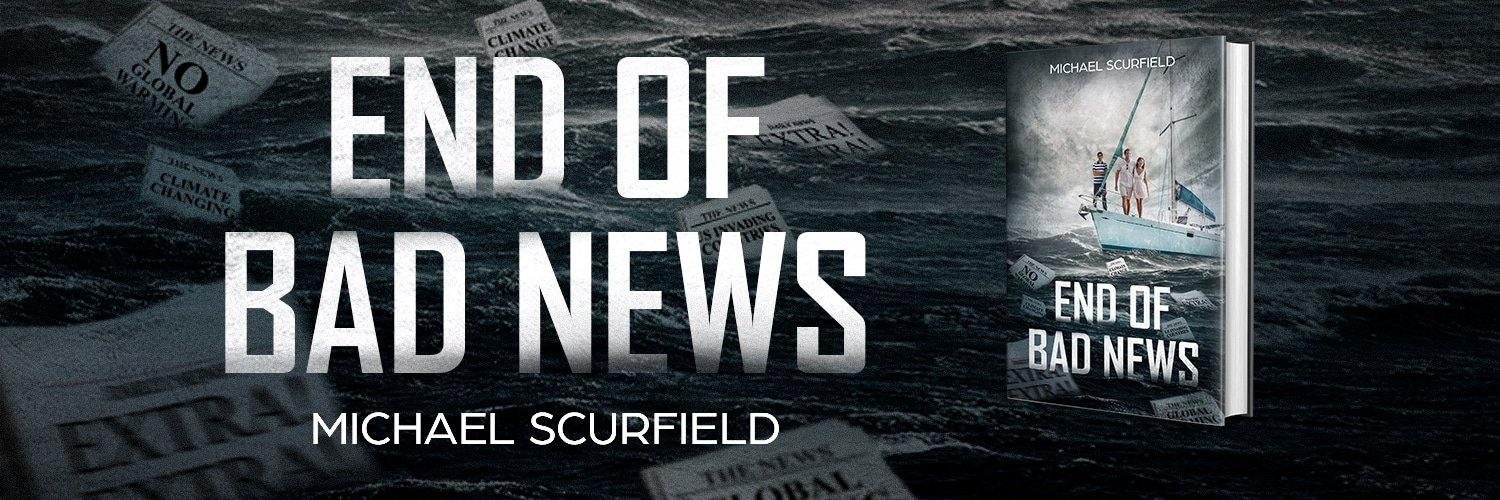So you’ve written a book. Now, it’d be cool if all the effort and time you invested paid off.
Unfortunately, books don’t sell that well, regardless of whether they’re traditionally or self-published. Writing ebooks for a living is a dream of many indie authors.
What should you do then? How to make money writing a book?
The answer is twofold:
- You need to get clever with book promotion;
- Your income as an indie author shouldn’t rely on book sales alone.
To better understand the issue, let’s take a look at…
How much money can you make writing a book?
It’s difficult to estimate how much you can earn writing ebooks for a living. Being a successful indie author is a complex process that involves a lot of different variables.
While a significant chunk of self-published writers sell 100 copies of a book in years, successful ones can sell a thousand copies each month.
But, if we assume you’re diligent about marketing, creating quality books, and building a backlog of works, $500/month is a doable number.
With a big IF though
To achieve this, you need to sell around 250 copies a month at $2.99 or 125 copies at $5. As follows, if you have five books in your backlog, you need to sell 50 or 25 copies of each per month.
As you see, writing ebooks for a living is a difficult task. You need a few books that sell regularly as well as diligent marketing and a strong author brand.
Still
If you wonder how to make passive income by selling ebooks, there are a few approaches that can boost your sales.
How to Make Money Writing a Book Online: Boost Your Book Sales
Here are a few ways you can boost your sales to earn money writing fiction online.
Use Affiliates
Promotion is key. Though traditional methods of marketing take time and can be too inefficient for you. So, you can try working with affiliates to improve your passive income from your ebooks.
Affiliates promote your product and receive a cut of the profit (usually 20 to 50% on digital products) they helped obtain. Affiliates are particularly effective if you’re selling on your website.
To start working with affiliates, you can use special affiliate platforms, such as
Or, you can try affiliate software, such as
To help your affiliates be more productive,
- Share a few free copies of your works, so they know them better;
- Provide them with visual marketing materials of your book, so it’s easier for them to plug your works and include them on blogs and websites;
- Keep your affiliates up to date on any changes to your products, special occasions, and discounts;
- Engage them with contests and higher bonuses.
Implement Discounts
Discounts and flash sales can help make money for writing a book on Amazon and other platforms.
The cool thing about discounts and sales — there are oh-so-many ways you can do them:
- Discounts of different levels (10%, 25%, or maybe even 75% off);
- Black Friday discounts;
- Holiday discounts;
- Flash sales;
- Announced discounts;
- Unannounced discounts.
Mix different discounts up for the greatest effect.
To make your book discounts particularly effective
- get your affiliates involved;
- create super-visible CTAs on your website;
- remind followers about discounts across all your channels a few times.
Use email sales funnels
One of the most prevalent answers to the question
How to make passive income by selling ebooks?
Is email marketing.
But, you need a good strategy to maximize the effectiveness of this approach. And one of such strategies is email funnels.
Email funnels are a planned and scheduled chain of letters that play off each other to motivate your audience to perform certain actions. When done well, they can help you earn money writing fiction online.
Ideally, an email sales funnel should have the following structure:
- creating awareness about the event;
- creating consideration of the event;
- creating conversion for the event;
- strengthening loyalty after the event;
- building advocacy for your brand/works (optional).
For example, you want your followers to buy your book at a discount that will happen in a few days. In this case, your email funnel letters should look like this:
- Day 1: Awareness. A letter that informs your followers about an upcoming discount and why they should care about it.
- Day 2: Consideration. A letter that reminds your followers about the unique selling point of your book and the discount.
- Day 3: Conversion. On the day of the discount, a letter with a CTA to buy a book.
- Day 4: Loyalty. A letter where you thank for your reader’s support, share your joy, and provide a special bonus for your followers (a checklist, access to a special course or chat, a new chapter from the upcoming book, etc).
- Day 5: Advocacy (Optional). A letter where you encourage your followers to join an affiliate program, share something on social media, or leave book reviews.
Of course, you can divide each section into smaller subsections. For example, you can break the consideration stage into three different emails each of which tells something new and interesting about your book.
Monetize FOMO through tripwire pages
Time goes by, but the Fear of Missing Out (FOMO) remains a powerful marketing tool.
You can boost your ebook sales with the help of FOMO by creating tripwire pages on your website.
Tripwire pages appear after a certain action is performed. For example, you redirect a user from a blog to a special offer. Then, a limited discount with a timer appears that urges the user to get your ebook, course, or other product until time’s running out.


Example from the article How to User Landing Pages to Grow Your Business.
________________________________________________
The answer to the question,
How to self-publish a book and make money?
is a tricky one. Usually, there’s not beating years of building a backlog of quality books
Fortunately, the few strategies mentioned above can help you boost your book sales even if you’re relatively new to the game.
But, the income of a full-time indie author rarely relies on book sales alone.
So, let’s take a look at alternative ways of monetizing your craft.
How to Make Money Writing a Book Online: Alternative Ways of Monetization
As a published indie author, you have much more to offer than just the books. You already know self-publishing caveats, what it takes to write a book, marketing nuances, the worst mistakes of beginner authors, etc.
So, why not try and monetize your experiences and expertise?
Consulting and Coaching Services
You’ve written and published a book. You’ve already accomplished a dream of many.
Now, you can help others to accomplish what you did. Maybe, you’ve had struggles with self-discipline and learned to overcome them. Maybe, you have a system that allows for productive writing. Maybe, you know how to outline a plot, create believable characters and worlds.
In other words, you can monetize any facet of writing skill that other writers can benefit from.
There are different ways you can approach creating consulting services:
- Selling video courses and selling them through your website or specialized platforms;
- Selling written self-help guides for self-published writers;
- Providing one-on-one coaching for writers to help them write, boost their time-management and discipline, or provide constant feedback;
- Conducting intensive group workshops for writers.
Manuscript critique services
If you have a published book and it sells, you already have the credibility to critique works of other authors to help them achieve the same.
So why not offer extensive critiques of manuscripts for a fee. You can even involve affiliates to help sell your service better.
Paid Speaking
A book can open new opportunities for public speaking events, which often pay very well, especially within the corporate setting.
A published book is especially useful for people who already do public speaking.
For example, John Rubin — a successful corporate gifting expert — charged about $5K for an event before publishing the book. Afterward, he boosted his fee to $30 thousand.
Patreon
Patreon is a platform for supporting independent artists and content creators through crowd-sourcing.


If you’re a self-published author, who wants to use Pateron, it’s simple:
- You register on Patreon;
- You create different tiers of subscriptions each of which has its cost depending on what’s included;
- You invite followers to subscribe;
- They pay you monthly or per certain milestone while you provide them with exclusive content.
The trick is to develop a Patreon content strategy that will appeal to your audience and provide unique and engaging information, insights, and materials they won’t be able to find elsewhere.
Plenty of successful indie authors already use Patreon to great success. You can check their pages to see what works for them.
Here’s a common approach to Patreon tiers that indie authors prefer:
- The first tier ($1 – $5) — symbolic support of your craft and inclusion of patrons’ names in published books;
- The second tier ($5 – $20) — previous tier benefits + early access to ebook downloads and other content you produce
- The third tier ($15 – 20) — benefits of the previous tier + access to suggestions / private chat rooms
- The fourth tier ($15 – 40) — benefits of the previous tier + personal calls, signed hardback copies of the book, FAQ chats, etc.
Overall, with Patreon, you’re free to come up with any original subscription tiers. They will be effective as long as they provide patrons with a unique value.
Merchandise
Beautiful merchandise can sell like hotcakes. Besides, creating merchandise for your books can be a lot of fun. There are a few secrets to a well-selling swag:
- Start low. Invest in smaller, “cheaper” merchandise at first. Don’t start with hoodies for example. A cup with your art, a planner with character design and quotes, can be great starting points. And if your initial merchandise sells well, you can ramp up the production and invest in more expensive units.
- High-quality swag. You want your merchandise to be top-notch. Don’t try to cut corners, Find vendors who provide quality and beautiful swag even if it means you’ll less. It goes for the materials of the merchandise as well as for the quality of the designs themselves.
Summing Up
Initially, writing a book online and getting paid may seem like too much work. But, the reality isn’t as scary as it seems: you have plenty of tools at your disposal that make it easier to earn a living as an indie writer. Experiment with different approaches, try to go beyond your comfort zone, and your efforts are likely to pay off.
And if you happen to need a book cover design on a budget or quality marketing materials, we’ve got you covered. Check out our portfolio for our covers and other works!














